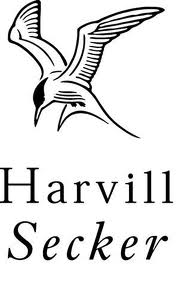Harvill Secker
 | |
| Parent company | Penguin Random House |
|---|---|
| Founded | 2005 |
| Country of origin | United Kingdom |
| Headquarters location | London |
| Publication types | Book |
| Official website | www |
Harvill Seckeris a British publishing company formed in 2005 from the merger ofSecker & Warburgand theHarvill Press.[1]
History[edit]
Secker & Warburg[edit]
Secker & Warburg was formed in 1935 from a takeover ofMartin Secker,which was in receivership, byFredric WarburgandRoger Senhouse.The firm became renowned for its political stance, being bothanti-fascistandanti-communist,a position that put them at loggerheads with the ethos of many intellectuals of the time.[citation needed]
WhenGeorge Orwellparted company withCommunist PartysympathizerVictor Gollanczover his editing ofThe Road to Wigan Pier(1937), he took his next bookHomage to Cataloniato Secker & Warburg, who published it in 1938. They also published, after 18 months of rejections and setbacks,Animal Farm(1945), and Orwell's subsequent books.[2]Orwell and Warburg later became intimate friends.
Secker & Warburg published other books by key figures of theanti-Stalinist left,such asMinty Alley,World Revolution,andThe Black JacobinsbyC. L. R. James,[3]Rudolf RockerandBoris Souvarine,[4]as well as works byLewis Mumford.
In February 1941, the company launched a series of "long pamphlets" or "short books" calledSearchlight Books,edited by George Orwell andT. R. Fyvel.[5]The series was originally planned to include 17 books, but was discontinued after the publication of 10 when bombing destroyed paper stocks.
With its financial position devastated by paper shortages during and after the war, Secker & Warburg were forced to join theHeinemann group of publishersin 1951. During the 1950s and 1960s, Secker & Warburg published the works of, among others,Simone de Beauvoir,Colette,J. M. Coetzee,Alberto Moravia,Günter Grass,Angus Wilson,Michael Moorcock,Melvyn BraggandJulian Gloag,as well as the British BuddhistLobsang Rampa.
Heinemann was purchased by theOctopus Publishing Groupin 1985; Octopus was purchased byReed International(nowReed Elsevier) in 1987.Random Housebought the adult trade division of Reed Books in February 1997.
Tom Rosenthal(1935–2014), chairman of theInstitute of Contemporary Arts,was head of Secker & Warburg from 1971 to 1984.[6][7]
Harvill Press[edit]
The Harvill Press was founded in 1946 byManya Harariand Marjorie Villiers.[8]The imprint was later acquired by the Glasgow-based publishing firmWilliam Collins and Sons,which in 1989, merged with the American publishers Harper & Row to formHarperCollins.
In 1996, Harvill Press became independent following a management buyout. The firm was bought by Random House in 2002, and was merged with Secker & Warburg in 2005 to become Harvill Secker.[9]
As of 2019[update],Harvill Secker is an imprint of Vintage Publishing UK.[10]
References[edit]
- ^"Book Collecting. Martin Secker & Warburg".
- ^Orwell, Sonia, and Ian Angus (eds),The Collected Essays, Journalism and Letters of George Orwell Volume 4: In Front of Your Nose (1945–1950).Penguin, 1970.
- ^Al Richardson."Introduction to 'World Revolution 1917–1936' by C.L.R. James".marxists.org.
- ^Harvard University LibraryArchivedSeptember 1, 2006, at theWayback Machine
- ^David R. Costello (April 1989). "Searchlight Books and the Quest for a 'People's War', 1941–42".Journal of Contemporary History.24(2): 257–276.doi:10.1177/002200948902400204.JSTOR260823.
- ^Tom Rosenthal (24 July 1998)."... in black, white, red and green – George Orwell".Times Higher Education.
- ^"Tom Rosenthal – obituary",The Telegraph,22 January 2014.
- ^Christopher MacLehose,"A Publisher’s Vision"Archived26 March 2017 at theWayback Machine,EnterText4.3 Supplement.
- ^"Secker and Harvill to Merge".booktrade.info.13 February 2004. Archived fromthe originalon 8 March 2012.
- ^"Harvill Secker | Readers First".readersfirst.co.uk.Retrieved25 June2023.
